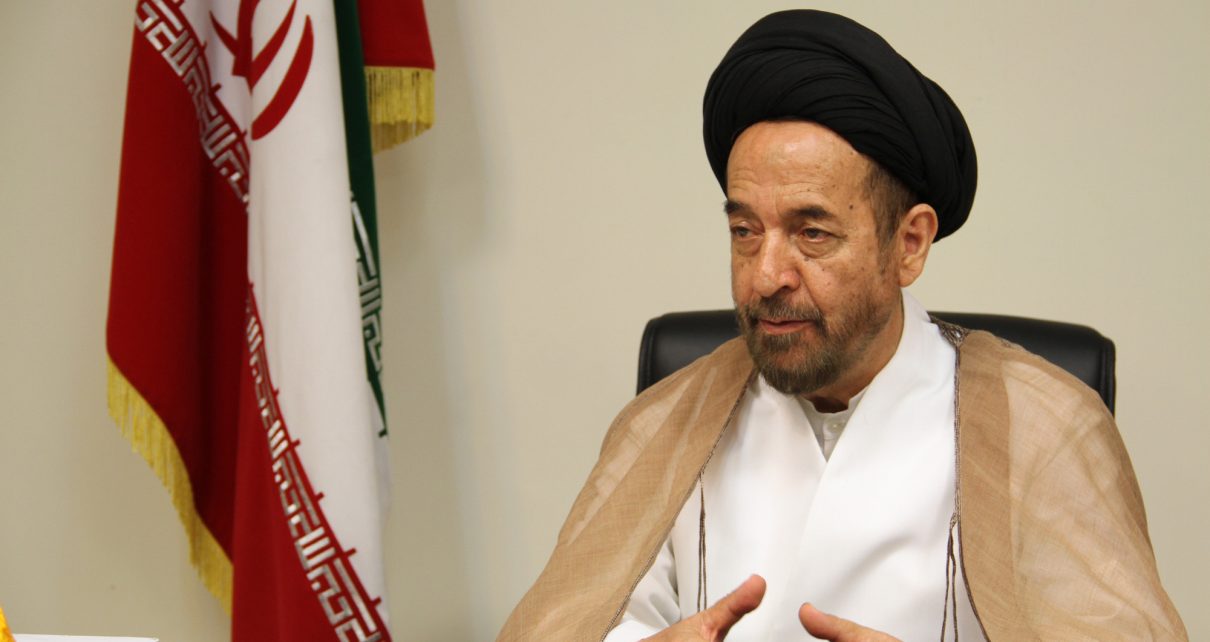
RNA – An academic conference on the Revolutionary Movement of 15 Khordad, 1342 [June 5, 1963] was held today at the Cultural Revolutionary Research Institute in Tehran with the presence of experts and researchers in this field.
At this conference, Hujjat al-Islam Sayyed Hamid Rohani, the head of the History Research Foundation and Encyclopedia of the Islamic Revolution of Iran, referred the characteristics and privileges of the 15 Khordad Movement in comparison to previous movements and said, “Before the 15 Khordad Movement, movements such as the Constitutional Revolution, Mulla Ali Kani’s opposition, the Nationalization of the Iranian Oil Industry and the Tobacco Protest occurred that were either anti-colonial or anti-imperialist but the privilege of the movement of Imam Khomeyni was that it was both anti-colonial and anti-imperialist and included the struggle against the United States, the Shah and SAVAK, which did not leave a way to restore the enemies.
The Iranian cleric added that the other privileges of Imam Khomeyni’s movement was that in the previous movements or the main enemies were not known or they did not fight directly with the enemies and the main cause, but they fought against the effect but the Imam immediately identified the main enemies and directly fought against them.
“This was the secret of the success of the Imam,” he said.
He stated, “Among the other privileges of the 15 Khordad Movement was that the late Imam never thought of negotiating, compromising, making obeisance and political bargaining with foreigners and the enemies from the beginning and didn’t even allow them to have a private appointment with him. This is the unshakeable line of Islam and the school of Shi’ism.”
Hujjat al-Islam Rohani added, “The movement of Imam Khomeyni was a cultural and intellectual movement and from the outset it was intended to develop and raise awareness among the people and was implemented like a type of bomb among society. The Imam always treated the people with honesty.”
In other remarks, Mohammad-Mahdi Abdekhodaei, a member of the Fedaiyan-e Eslam group and a friend of the martyr, Navvab-Safavi, explained the factors affecting the uprising of 15 Khordad, saying, “The Islamic Seminary has always played a role in the awakening of the Islamic society.”
He added that Imam Khomeyni was both a builder of culture, an opponent of colonialism and was also an idealist, saying, “For this reason, the Islamic Revolution achieved victory under his leadership. Imam Khomeyni was a scholar, a theorist, a philosopher and a sage who separated a military and revolutionary coup d’état from each other and trained students and clerics who succeeded on 15 Khordad.”
In conclusion, Mr. Abdekhodaei said that Imam Khomeyni introduced self-knowledge and monotheism again in the world, even though anti-religious and anti-Shi’ah books were published in Iran.
The demonstrations of June 5 and 6, called the 15 Khordad Uprising, were protests in Iran against the arrest of Imam Ruhollah Khomeyni after his denouncement of the Shah, Mohammad-Reza Pahlavi, and Israel.
Rasa News Agency
112/974